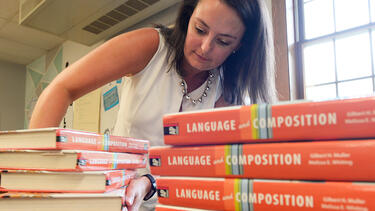Barbara Biasi
Does Capital Spending on Schools Improve Education?
Yale SOM’s Barbara Biasi and her co-authors found that some projects improve test scores and others boost local property values—but they aren’t the same ones.

Lack of Access to Mental Health Treatment Reduces Lifetime Income
Prof. Barbara Biasi and her co-authors found that those who couldn’t access treatment for bipolar disorder paid a price over the course of their careers—suggesting that lack of access to care can worsen economic inequality.

Weakening Unions Can Lead to Gender Gap in Wages
In 2011, legislation in Wisconsin reduced the power of unions to negotiate teachers’ salaries. Within five years, male teachers started earning more than women did.

U.S. Jobs Numbers Show an Uptick from a Grim Baseline
We asked labor economist Barbara Biasi what can be understood from the latest Employment Situation Summary—including whether the numbers are accurately reflecting the effects of a fast-moving crisis.

Equalizing School Spending Boosts Lifelong Income
School finance reforms that equalize spending across rich and poor neighborhoods improve the long-term economic outcomes of disadvantaged children.

Does Performance-Based Pay Improve Teaching?
Yale SOM economist Barbara Biasi studied what actually happened when some school districts in Wisconsin started paying partly based on effectiveness.

Three Questions: Prof. Barbara Biasi on Teacher Pay
We asked Barbara Biasi, a labor economist with a focus on education, about this year’s teachers' strikes and the wider implications of how we compensate teachers.
